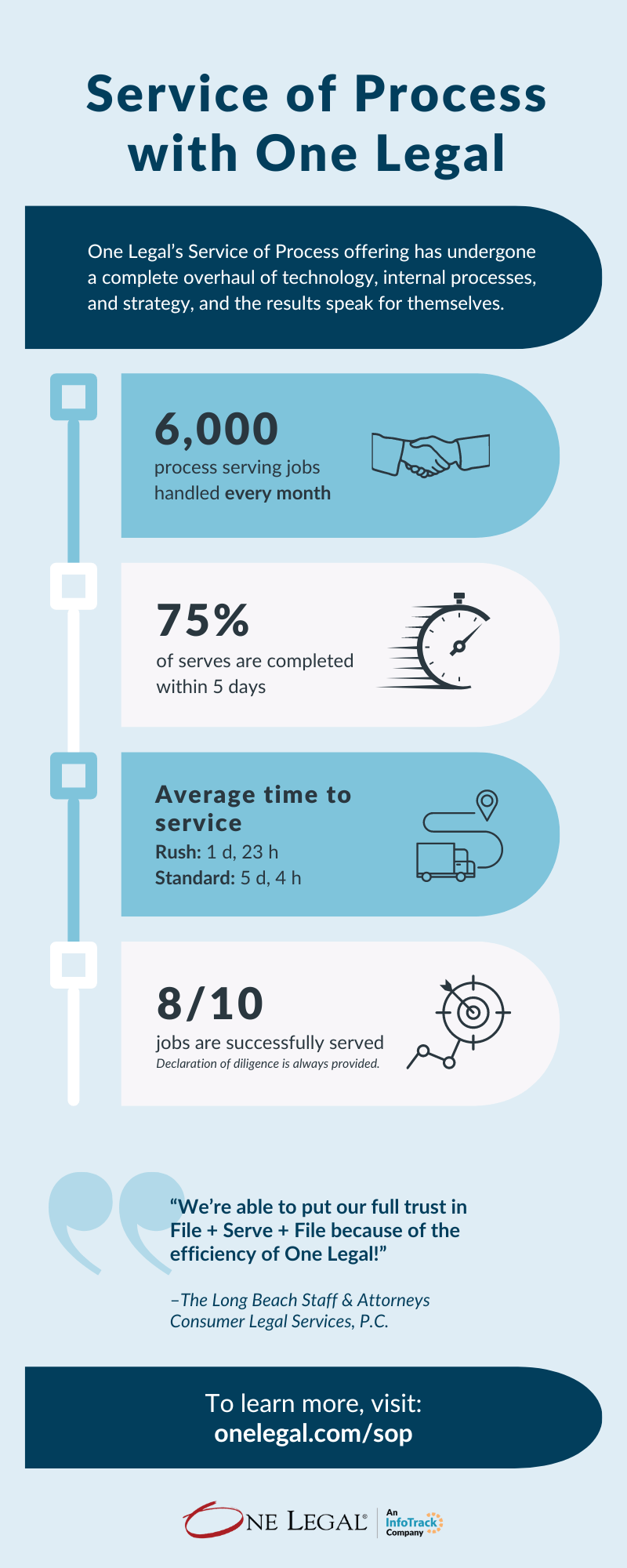Comprehending the Relevance of Process Serving in Lawful Treatments
Refine serving is an essential element of lawful procedures that guarantees all parties are notified of their legal rights and obligations. By helping with the official shipment of necessary lawful files, it upholds the concepts of due procedure and adds to the honesty of the judicial system. The subtleties of reliable process serving prolong past plain delivery; they include lawful demands and potential effects of incorrect solution. Recognizing these ins and outs can significantly impact the outcomes of lawful conflicts, motivating a better exam of the practices that underpin this crucial function.
Meaning of Process Serving
Process offering is a vital element of the legal system, defined as the formal delivery of lawful papers to individuals included in a litigation. This procedure makes certain that all celebrations are effectively informed of lawful actions being taken versus them or to which they are a celebration. Commonly, these records include summons, grievances, subpoenas, and various other court-related documents that call for the recipient's interest and reaction.
The value of procedure offering depend on its function in maintaining the concepts of due process. It guarantees that people have notification of lawful process, consequently providing them an opportunity to respond or safeguard themselves. Correct service of process is not simply a step-by-step rule; it is an essential facet of ensuring justness and openness in the judicial system.
Process serving can be performed by different people, consisting of specialist process servers, regulation enforcement police officers, or also lawyers, depending on jurisdictional guidelines. Each technique of solution has its very own requirements and methods, which are essential to stop hold-ups or dismissals within the lawful framework. Comprehending the definition and function of procedure offering is crucial for all stakeholders included in lawful process.

Legal Requirements for Refine Offering
Legal demands for procedure offering are vital to ensure that the delivery of lawful documents abides by developed protocols and is acknowledged by the court. Each territory has certain regulations controling exactly how and when papers need to be served, which might include grievances, summonses, and subpoenas.
Generally, process-server have to be neutral third events that are not involved in the instance. They need to likewise conform with state guidelines pertaining to solution approaches, which can include individual service, replacement service, or service by mail. Individual service includes supplying documents straight to the recipient, while alternative service permits delivery to one more responsible person at the recipient's home or workplace.
In addition, process-server are generally needed to file an evidence of service, a legal record that verifies the delivery of documents, with the court. This record consists of information such as the day, time, and technique of solution, along with the name of the person offered.

Duty in the Justice System
An essential part of the justice system, process offering makes sure that individuals involved in lawful proceedings are appropriately informed of activities taken against them (Process Serving). This formal notification is critical for supporting the principles of due process, which mandates that celebrations have the chance to reply to insurance claims made versus them. Without efficient procedure offering, the lawful system would be provided inadequate, as people can participate in activities without understanding of pending lawful issues
Process web servers serve a vital role in protecting the integrity of the lawful process. They function as neutral celebrations, supplying legal documents such as summons, issues, and subpoenas, thus fostering transparency and responsibility within the judicial framework. By making sure that all parties are informed, process serving assists to prevent any prospective unfair benefit, enabling fair involvement in legal process.
Moreover, the professionalism and reliability of process servers adds to the general public's trust fund in the justice system. Their adherence to legal requirements and moral practices enhances the legitimacy of the judicial procedure. Eventually, effective process serving is important in promoting the regulation of legislation and guaranteeing that justice is easily accessible to all individuals entailed in lawful disagreements.
Consequences of Improper Service
The consequences of improper service can substantially weaken the integrity of lawful procedures. When a party is not served correctly, it can cause a host of issues, including delays in the instance timeline and raised legal prices. Inappropriate service can lead to the defendant not understanding the legal activity versus them, which my response might avoid them from responding properly or presenting their defense. This absence of notification can inevitably cause skip judgments, where the court regulations in click favor of the plaintiff without hearing the offender's side.
Moreover, improper solution can make court orders and judgments void, requiring the complainant to reboot the procedure, which can be both economically burdensome and taxing. It can also open the door to charms and obstacles, as the defendant may argue that they were not correctly alerted of the proceedings, making complex the lawful landscape even more.
Best Practices for Effective Service

2nd, timing plays a crucial duty. Serving files promptly can prevent delays in legal process and guarantee that all parties are notified in a prompt way. Additionally, employing a professional process web server can enhance performance, as they are trained to make certain and browse possible difficulties conformity with local laws.
Third, keeping accurate documents of the service process is essential. Recording the day, time, and manner of service can offer important proof if disputes emerge relating to whether solution was correctly performed.
Verdict
To conclude, process offering is an essential component of lawful procedures, ensuring that all events are duly informed and afforded the possibility to respond. Sticking to lawful requirements and ideal practices not only supports the principles of due procedure however likewise enhances the integrity of the justice system. The effects of improper solution can bring about considerable hold-ups and difficulties, highlighting the need for reliable process serving in promoting justness and accessibility in lawful disputes.
The subtleties of efficient procedure offering prolong past simple delivery; they incorporate legal requirements and prospective effects of incorrect solution.Refine offering is a crucial component of the lawful system, defined as the formal distribution of legal documents to individuals involved in a court situation. Without effective process serving, the lawful system would certainly be provided inefficient, as individuals can engage in activities without recognition of pending legal issues.
Process web servers serve a crucial duty in guarding the honesty of the lawful process - Process navigate to these guys Serving. The effects of inappropriate solution can lead to substantial delays and complications, highlighting the necessity for efficient process serving in promoting fairness and ease of access in lawful disputes